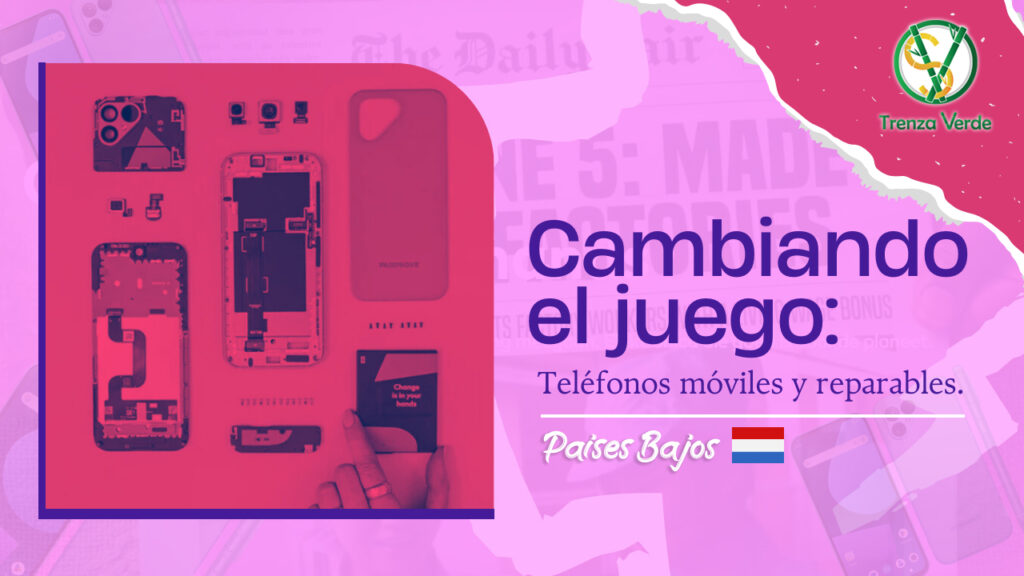Finally, a mobile phone company that actually cares about consumers—and their wallets!
This week’s spotlight is on Fairphone, a Dutch company dedicated to developing smartphones that are designed to be repaired, making their lifespan significantly longer.
Fairphone is a startup from the Netherlands that perfectly embodies the principles of the circular economy. This innovative tech company creates ethical, repairable smartphones. They source conflict-free materials and ensure fair working conditions throughout their entire supply chain.
But what really sets Fairphone apart from the rest is its commitment to durability and repairability. Whether through professional technicians or DIY fixes using the company’s own repair guides, Fairphone empowers users to extend the life of their devices. That might not sound like a big deal at first—but in a tech world dominated by planned obsolescence, it’s revolutionary.
Planned obsolescence is a shady strategy many big tech companies use to force consumers to discard their devices after a short period of time. Take Apple, for example. With every new release, it subtly shortens the lifespan of its older phones, quietly nudging users to spend more money sooner than necessary on newer, pricier models with barely noticeable upgrades.
Fairphone flips the script. Instead of designing products meant to fail, they build phones meant to last—respecting not just the planet, but the people using them.
Fairphone designs its smartphones to be modular, allowing users to easily replace individual components like the battery or camera.
This smart approach helps extend the device’s lifespan and significantly cuts down on electronic waste. Fairphone also provides repair guides and spare parts, giving users the tools they need to fix their phones instead of tossing them out or buying a new one. By challenging the throwaway culture of the electronics industry, Fairphone proves that smartphones can be both sustainable and user-friendly.
We love this kind of thinking because it clearly shows that technology doesn’t have to be at odds with the environment. Every year, tons of electronic waste are generated—waste that could start to shrink if major tech companies adopted more responsible policies, not just toward the planet but also in favor of consumers.
According to data from the United Nations in a 2022 consumption study, “humans generated 62 million metric tons of electronic waste—that’s the equivalent of one and a half million trucks lined up, enough to circle the Earth at the equator.”
Another striking fact from the same study: “Less than a quarter (22.3%) of electronic waste was properly recycled in 2022, leaving 62 million tons of recoverable natural resources unaccounted for—and increasing the risk of pollution.”
And we close with a truly alarming figure—one that reminds us why we urgently need to act on e-waste management: 31 million tons. That’s the estimated weight of metals embedded in e-waste in 2022, along with 17 million tons of plastics and 14 million tons of other materials (minerals, glass, composite materials, etc.).
So, tell us: Would you consider switching to a more durable, repairable phone to help extend its life and reduce the massive environmental impact of tech waste?
You can read the full United Nations article at this link
https://news.un.org/es/story/2024/03/1528476#:~:text=31%20millones%20de%20toneladas%3A%20Peso,%2C%20materiales%20compuestos%2C%20etc.)
lanned obsolescence* refers to the intentional practice by manufacturers of designing products to stop working after a set period of time. While it’s normal for products to wear out and eventually reach the end of their useful life, planned obsolescence involves deliberately built-in flaws to shorten that timeline.

